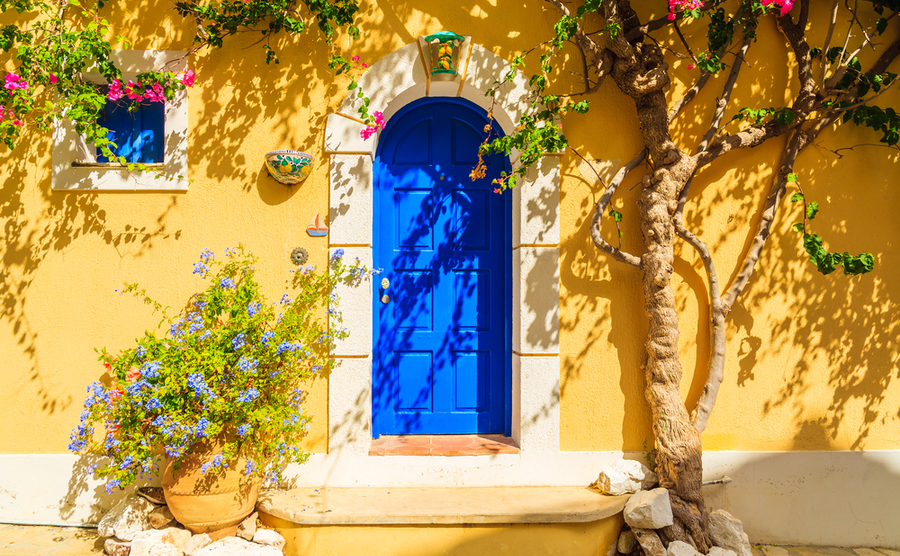Coronavirus means the currency markets are even more unpredictable than usual, as our tracking of a €100,000 house in pounds over the last two months shows. Here’s what’s happening and how to plan ahead.
The last few weeks have been particularly choppy for the currency markets, even more so than usual. The pound and euro, over the last two months, have strengthened and weakened by almost 15%. For a €100,000 property purchase, that’s equivalent to finding an extra £10,000 or more in your sterling budget.
Investors return to Eurozone
The euro ended February, to the surprise of many, by strengthening against the pound, despite Italy becoming an epicentre for Covid-19. The reason for it was less confidence in the euro than worries about the direction the UK was taking; the euro is what’s called a ‘funding’ currency, so investors use it to buy in other currencies. When that other currency they’ve bought in, in this case pound sterling, seems dicey, some will sell off. This meant there was actually an influx of capital into the Eurozone at the beginning.
Cost of a €100,000 house: £83,106.00
Bank of England cuts base rates
The Bank of England took the dramatic step of making a second emergency base rate cut in late March, bringing them down to a historic low. There had been many rumours swirling before, and the uncertainty of this, combined with a 30-day travel ban in the EU for non-EU citizens, helped to push the pound to historic lows of 1.05 against the euro. Great news for anyone moving money back to the UK from Europe, not so great for anyone going in the other direction.
Cost of a €100,000 house: £94,940.00
BoE Governor Andrew Bailey pledges further economic support
Sometimes, even something that’s not particularly concrete can boost a currency or send it down, which is part of what makes it so impossible to predict. Following the Bank of England’s second emergency cut, Andrew Bailey said at the end of March that he would be happy to support further measures to boost the economy. Even without much confirmation of what this could look like, investors took heart and the pound was given a small boost.
On the same day, the European Commission’s economic forecasts came in, revising its GDP growth projections down to 0.8% and warning of only a ‘modest’ recovery ahead.
Cost of a €100,000 house: £90,110
Eurozone split over ‘coronabonds’
By the start of April, it was becoming more and more clear that there are significant disagreements within the Eurozone on how the bloc should handle the crisis. Similarly to the difficulty resolving a budget late last year, commentators spoke of a divide between the so-called ‘frugal four’ – the Netherlands, Germany, Austria and Finland – and southern European countries hit the hardest by the crisis, including Italy and Spain.
The latter, with the support of France’s Macron, have been pushing for so-called ‘coronabonds’. In a nutshell, it would be a bit like pooling Europe’s debt, so that it’s better managed and spread. For the wealthier northern countries, the idea is deeply unpopular with voters, while Italy and Spain consider it as a disavowal of European solidarity to reject the measures. With no clear route out, the euro sank to a three-week low against the pound.
Cost of a €100,000 house: £87,490
Rumours of a Brexit extension gather pace
As we said above, rumours can impact the markets as much as reality and, with the UK’s social distancing measures seeming likely to continue for some time, the idea of an extension to the Brexit trade talks and transition year began to seem more and more likely. Currently, the government has committed to a trade deal by mid-2020, and the UK would legally finish the talks without a deal on 31st December if one had not been agreed. However, no-one will deny these are unusual times, and it seems more and more probable that the two sides will agree to a further extension.
Cost of a €100,000 house: £89,100
Boris Johnson admitted to hospital
Just when the pound had started to recover some ground, the news broke that Boris Johnson had been admitted to hospital for persistent coronavirus symptoms. When, the following day, the press reported that he had been taken into intensive care, we saw a further small dip. However, with further information saying that he is stable and not on a ventilator, we saw the pound recover some ground.
Cost of a €100,000 house: £88,500
Your next steps
No-one knows what is coming up next and, as our list shows, anything from hard facts to rumours can cause investors to take flight. Unless you can afford to find the extra £10,000 in this real-life example, you need to make sure your money is protected – or risk huge unforeseen costs. Don’t turn your move into a gamble; speak to your Personal Trader on 020 7898 0541 today about securing a fixed exchange rate for up to twelve months with a forward contract.
Don’t just take our word for it. Here’s what one of our clients, Lesley Young, wrote about her recent purchase in Spain on Trustpilot:
Rated Excellent for Currency Exchange & Money Transfers


Reassurance from Jack Wiggs, our Personal Trader, from the initial deposit to secure a house purchase in Spain and then a forward contract to seal in the euro rate which gave us peace of mind with our finances and has saved us money in this volatile climate with coronavirus all around the world.
I felt I could speak to Jack and ask him anything I was not sure about during the whole process. It took a lot of stress away from my husband and I – in fact, everyone was very efficient and very knowledgeable with all aspects of the process’s We were kept informed at all times.
We would not hesitate to recommend this company. A big thanks.
Lesley Young View all testimonialsSpeak to your Personal Trader today on 020 7898 054 to protect your money in these volatile times.





















